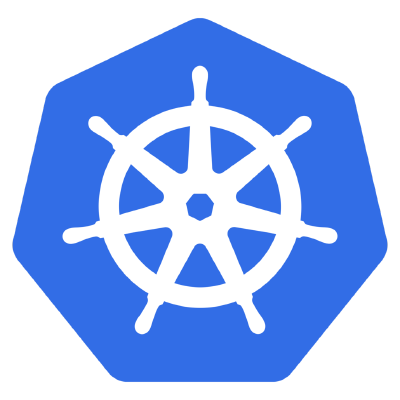Ecosyste.ms: Awesome
An open API service indexing awesome lists of open source software.
https://github.com/max-rocket-internet/k8s-event-logger
Watches k8s cluster events and logs them to stdout in JSON
https://github.com/max-rocket-internet/k8s-event-logger
Last synced: about 15 hours ago
JSON representation
Watches k8s cluster events and logs them to stdout in JSON
- Host: GitHub
- URL: https://github.com/max-rocket-internet/k8s-event-logger
- Owner: max-rocket-internet
- License: gpl-3.0
- Created: 2019-06-12T10:11:59.000Z (over 5 years ago)
- Default Branch: master
- Last Pushed: 2024-09-25T16:24:41.000Z (4 months ago)
- Last Synced: 2025-01-24T22:06:06.839Z (8 days ago)
- Language: Go
- Homepage:
- Size: 170 KB
- Stars: 222
- Watchers: 9
- Forks: 30
- Open Issues: 1
-
Metadata Files:
- Readme: README.md
- License: LICENSE
Awesome Lists containing this project
README
# Kubernetes event logger

This tool simply watches Kubernetes Events and logs them to stdout in JSON to be collected and stored by your logging solution, e.g. [fluentd](https://github.com/fluent/fluentd-kubernetes-daemonset), [fluent-bit](https://fluentbit.io/), [Filebeat](https://www.elastic.co/guide/en/beats/filebeat/current/running-on-kubernetes.html), or [Promtail](https://grafana.com/docs/loki/latest/clients/promtail/). Other tools exist for persisting Kubernetes Events, such as Sysdig, Datadog, or Google's [event-exporter](https://github.com/GoogleCloudPlatform/k8s-stackdriver/tree/master/event-exporter) but this tool is open and will work with any logging solution.
## Why?
Events in Kubernetes log very important information. If are trying to understand what happened in the past then these events show clearly what your Kubernetes cluster was thinking and doing. Some examples:
- Pod events like failed probes, crashes, scheduling related information like `TriggeredScaleUp` or `FailedScheduling`
- HorizontalPodAutoscaler events like scaling up and down
- Deployment events like scaling in and out of ReplicaSets
- Ingress events like create and update
The problem is that these events are simply API objects in Kubernetes and are only stored for about 1 hour. Without some way of storing these events, debugging a problem in the past very tricky.
Example of events:
```text
39m Normal UpdatedLoadBalancer Service Updated load balancer with new hosts
40m Normal SuccessfulDelete DaemonSet Deleted pod: ingress02-nginx-ingress-controller-vqqjp
41m Normal ScaleDown Node node removed by cluster autoscaler
54m Normal Started Pod Started container
55m Normal Starting Node Starting kubelet.
55m Normal Starting Node Starting kube-proxy.
55m Normal NodeAllocatableEnforced Node Updated Node Allocatable limit across pods
55m Normal NodeReady Node Node ip-10-0-23-14.compute.internal status is now: NodeReady
58m Normal SuccessfulCreate DaemonSet Created pod: ingress02-nginx-ingress-controller-bz7xj
58m Normal CREATE ConfigMap ConfigMap default/ingress02-nginx-ingress-controller
```
## Installation
Use the [Helm](https://helm.sh/) chart from this repo:
```sh
helm install chart/
```
Or use the chart from [deliveryhero/helm-charts/stable/k8s-event-logger](https://github.com/deliveryhero/helm-charts/tree/master/stable/k8s-event-logger):
```sh
helm repo add deliveryhero https://charts.deliveryhero.io/
helm install deliveryhero/k8s-event-logger
```
Or use the pre-built image [maxrocketinternet/k8s-event-logger][pre-built image]
### Building a container image
If you're unable to use the [pre-built image], you can build it yourself:
```sh
make all IMG=/k8s-event-logger TAG=latest
```
This uses `docker buildx` to create a [multi-platform image]. To set up your build host system to be able to build these images, see [this guide][multi-platform image] or `make all` and review the Makefile for what it does.
[multi-platform image]: https://docs.docker.com/build/building/multi-platform/
[pre-built image]: https://hub.docker.com/r/maxrocketinternet/k8s-event-logger
Or to just build locally for testing without multi-arch support (but also doesn't require a registry):
```sh
docker build --tag localhost/k8s-event-logger .
```
## Testing
Run it:
```sh
go run main.go
```